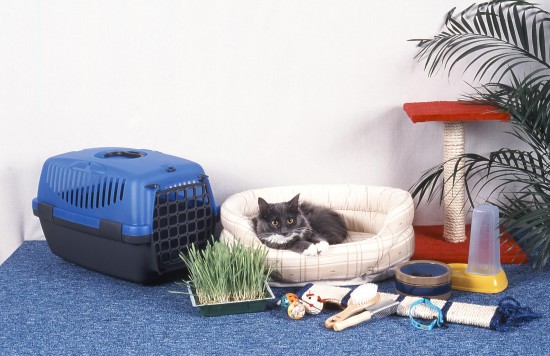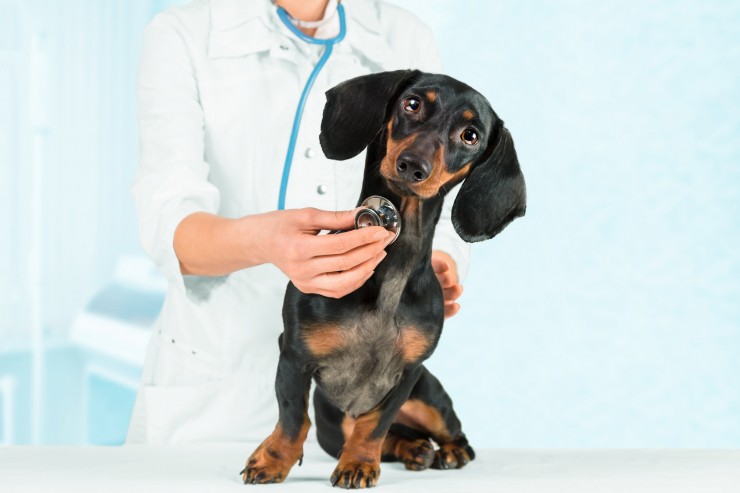
Prevention is better than cure and in order to prevent and protect a bearded dragon from common diseases, such as parasitic infections, impaction, dehydration, metabolic bone disease, calcium deficiency and thermal burns, the human caregiver has to give their pet the proper care and attention.
The fact is that proper care is not difficult, but will demand the caregivers or pet owner's time. For instance, calcium deficiency, a common dragon disease can be easily prevented and avoided if the lizard is fed a varied diet and a diet that is rich in calcium. Gut loaded crickets which are commercially sold, along with other foods rich in calcium will ensure this disease is avoided. Seasoned keepers also recommended that supplements be given to the lizard, to make completely sure that the lizard's calcium intake is high.
Thermal burns are not considered as a bearded dragon disease however, this ailment does occur in captive dragons and is due to incorrect settings on the light used to replicate the sun in the dragon's enclosure. This is easy to remedy and the attentive pet owner will quickly resolve such a problem. A respiratory infection may be an indication that the lizard's environment is too hot, too dry or too moist. A balance needs to be found and the temperature and lighting settings are to be correctly set to avoid and prevent any respiratory infections from occurring. The symptoms of this infection or illness, are blocked noises and raspy breathing, similar to the symptoms of a common cold in a human.
A good method to detect the onset of a disease is to note the bearded dragon's eating habits or their appetites, however this should be done over a few days as a healthy dragon could lose their appetite for a day or two and then return to their healthy eating habits. Monitoring the feces or urine will also help the owner to find out if the reptile is ill. If urine becomes powdery or stools are loose and watery - this may be a sign that the bearded dragon has contracted a disease.
Parasites are a nuisance to all keepers and often, when new baby dragons are purchased from pet stores, the chances tend to be high that the dragons will already be infected by parasites. Unfortunately, if this is the case, intervention is required and to effectively fight this common bearded dragon disease, the lizard will need to be put on a course of treatment to eradicate the infestation. It is important to carefully wash all foods and to inspect any cage accessories for any signs of parasites. If this is done well, any threat of parasites will be reduced.
If this strange yet fascinating lizard is well cared for, given the correct amount of care, the right diet and attention, the captive dragon can live for up to fifteen years in captivity. Even though there seems to be many bearded dragon diseases lurking, with the right diet and good care these ailments can be easily prevented. It is important to also check the skin of the lizard on a regular basis to make certain that no skin attacking parasites are present and that their skin is in a good condition. To avoid dehydration, make certain that fresh water is available and also get the temperature and lighting settings right.
Impaction is another disease and this is caused by feeding the lizard, food which are too large to digest. As a rule and as a means to avoid this disease, food that is fed to the dragons should be no bigger than the space between their eyes.
This part is important, so read carefully.
Go to my website right now to learn about bearded dragon diseases. While you are there you might learn a thing or two about a bearded dragon terrarium as well. Sign up for my free Beardie Secrets newsletter.
 Cat Food, Water, Bed And Litter Tray Locations And Considerations
Cat Food, Water, Bed And Litter Tray Locations And Considerations
 How & When To Switch Puppies To Adult Food
How & When To Switch Puppies To Adult Food
 A Brief Information on Characteristics and Features of Great Dane Dog
A Brief Information on Characteristics and Features of Great Dane Dog
 5 Veterinary Schemes And Discounts That Can Save You Money On Your Pet’s Healthcare
5 Veterinary Schemes And Discounts That Can Save You Money On Your Pet’s Healthcare
 Why You Should Never Give Pets As Presents
Why You Should Never Give Pets As Presents
 10 Types Of Human Food Your Dog Can Eat
10 Types Of Human Food Your Dog Can Eat
Copyright © 2005-2016 Pet Information All Rights Reserved
Contact us: www162date@outlook.com